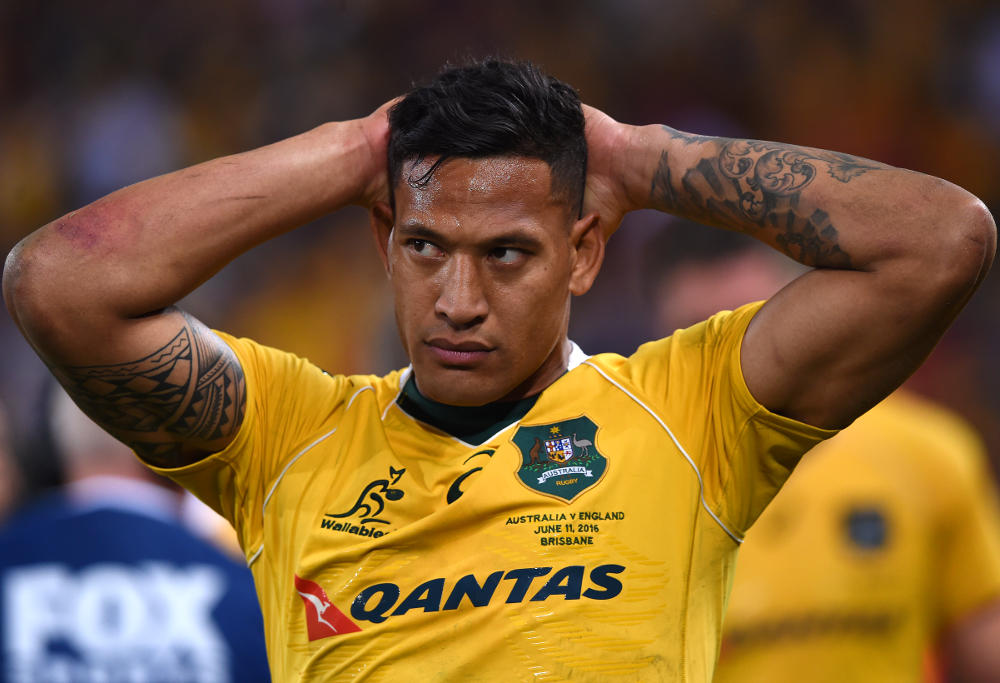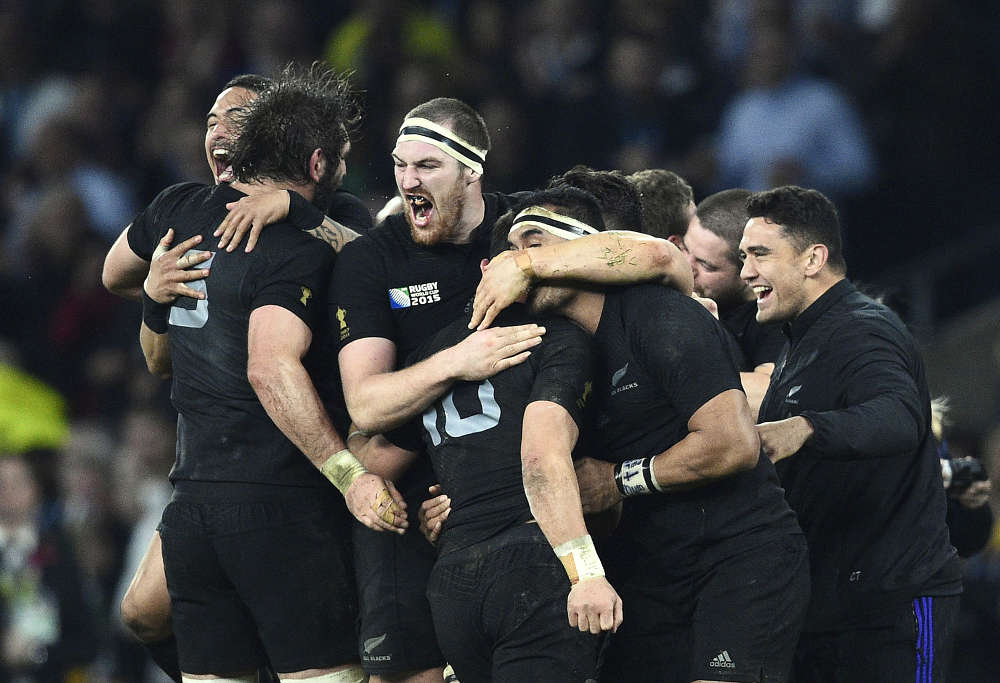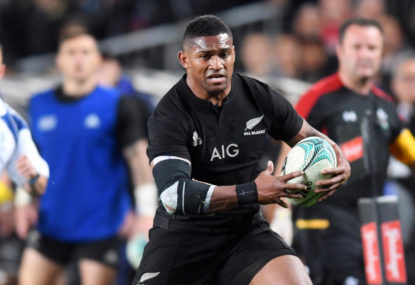The great thing about this year’s Rugby Championship is that all four teams are enigmas in their own right. They are unknown quantities, and that’s what will make analysing the four teams that much more interesting.
A soft recap of the June series tells us that New Zealand were the only SANZAAR nation to complete a clean-sweep against Six Nations opposition, beating the Welsh 3-0. To be fair, Wales did push the All Blacks hard for the better part of 60 minutes in the first two games. It was only in the last 20 minutes that the men in black managed to pull away on the scoreboard, as they so often do.
In contrast to this, the Springboks were downright lucky to have walked away with a 2-1 series win against Ireland, in what must be one of the worst Test series’ in South Africa since the dawn of the professional era. They lost the first game at Newlands against 14 men; the second and third games in Port Elizabeth and Johannesburg were won due to three key moments that went the Springboks’ way.
The Pumas’ first two wins against Italy and France were the first things to smile about for Argentine fans in 2016. In Super Rugby, the Jaguares – who are basically the Pumas in orange jerseys, but with a vastly inferior coaching staff to the national setup – only managed to win four of their games in the league stages of the competition after being heralded as early favourites for the title – an assumption with merit given the Pumas’ success in the 2015 Rugby World Cup. Unfortunately, they lost their last game against France by quite some margin.
Perhaps the biggest surprise was Australia going down 0-3 to England on home soil. Make no mistake, England were regarded as worthy opponents long before June, and it was totally reasonable to believe that they could sneak home with the series, but the fact that the Wallabies couldn’t manage one win in the series could be described as nothing other than a genuine shock. Remember that the Wallabies had been a formidable side in their own right last year, beating the Pumas, the Springboks, the All Blacks, Wales and England (at Twickenham) throughout the year and making the final of the Rugby World Cup.

So this year’s Rugby Championships sees a change in the fact that three nations are licking their wounds from the hard battles in June while the All Blacks have gone on in business-as-usual fashion. Normally we’d be accustomed to seeing the majority of the SANZAAR nations coming into the tournament having been 3-0 winners against their northern foes.
What does this mean for the Championship? Will those mental scars of June still haunt the Springboks, Wallabies and Argentina, making the title something of a foregone conclusion in New Zealand’s favour, or will those proud rugby nations have learned from their mistakes and push the favourites for the trophy all the way?
We’ll just have to wait and see. That, however, doesn’t stop us from analysing the coming weekend’s games. And that’s exactly what we’re going to do.
First up we have the first game of the Bledisloe Cup.
Wallabies versus All Blacks
The biggest game of the weekend will come first up, where the All Blacks travel to Sydney to battle the men in gold for Bledisloe Cup glory.
Usually these Bledisloe Cup encounters are accompanied with a buzz from the media. Usually there’s a bit of drama and controversy, too. This year is different. The media has done its best to talk up the game – primarily by cozening Steve Hansen and Michael Cheika into a debating battle – but in the end it’s come up to a whole lot of nothing.
A comment here about a certain coach being bullied by another coach, a comment there about which coach has the biggest selection headache; a comment here about a coach telling another coach that he should focus on picking his own side; a comment there about that coach thinking the other coach gives him no chance to win this coming Saturday…
Like I said – a whole lot of nothing really. Mostly it’s just misinterpretation from the media leading to attempted controversy. The match in itself will provide more than enough excitement.
The Wallabies are in something of a pickle, having lost their last four matches on the trot. A fair reflection will be that they didn’t look too inspiring against England. The truth is that they were tactically naïve, especially when it comes to the importance of a good tactical kicking game.
Michael Cheika has put emphasis on the fact that the Wallabies want to play an up-tempo, ball in hand, running game of rugby, which is fair.
Australia have the players to play this expansive game. Players like Israel Folau, Matt Gitteau, Quade Cooper, Samu Kerevi, Tevita Kuridrani and many more have the natural skillset to play the type of game that Cheika wants them to play, but their biggest mistake is believing that this style of rugby can be achieved in a Test match environment without a certain sense of tactical nous.
The All Blacks are the greatest example of this theory.

They are the best attacking side in the world, but they are also the best tactical side in the world. They take every facet of rugby into account. It is true that they are not the best scrummaging side in the world, nor do they have best lineout or rolling maul, but they are good enough in all those aspects to reach parity with the top sides in the world.
When New Zealand dominates in the set-phases (which they do in many games), they are ecstatic about it. But when they can’t dominate something like a scrum (which again does happen), they are content with achieving parity. It really doesn’t matter which one they get on the day.
Then again, when they do get dominated in something like, say, the lineout, they have the necessary contingencies to work around that shortcoming. More often than not, they fall back to their two biggest strengths: being able to spread the ball and having the option to execute good weighted tactical kicks that have a purpose to them.
That is what sets them apart from the other teams in the world. Experts all around the world often lament the attacking capabilities of the All Blacks, but what they often overlook is the fact that they are also the best tactical kicking side in the world.
Beauden Barrett showcased this ability superbly against the Lions in the Super Rugby final. His ability to clear the line, to kick for corners, kicking highly contestable up-and-unders and his consistency with cross-kicks and “kick-passes” were all weapons that contributed highly to the Hurricanes’ winning campaign. Players like Aaron Cruden and Lima Sopoaga are equally adept at this tactical kicking game, and that’s why both the Chiefs and the Highlanders have tasted success in recent years.
The Wallabies will need to take all of this into account when they face the All Blacks in Sydney.
Experts have a saying that goes: ‘You need to earn the right to go wide.’
The game of rugby is infinitely intricate in its complex design. This means that the right to go wide isn’t necessarily earned by a solid platform by the forwards. It can also be achieved by superior tactical kicking.
The Wallabies will need a platform from which to attack. If they can’t dominate or gain parity in the forward exchanges, they’ll need their backline to kick good tactical kicks to win favourable field position. It is a balance that must be achieved to beat the All Blacks.
Running the ball and kicking tactically walk hand in hand with success in rugby union. Teams like the Springboks and England suffer from this same shortcoming, only the other way around from the Wallabies.
While they are good tactical kicking sides with the ability to win favourable field position, they lack the running qualities to convert that pressure into points. What good is good field position if you can’t use the ball to score points from those positions? Instead those teams rely on the pressure created by field position itself to materialise in points through penalties.
That is the overreliance on tactical kicking and is the complete antithesis of the current style of Wallaby rugby. The Wallabies put emphasis on running the ball solely, good field position or not.
Does this mean that good attack can only come from good field position? Absolutely not. Running the ball has its merits. Running good lines, offloading the ball and playing at a high intensity can, obviously, create mismatches in defence and bring good results. There is absolutely no denying it.
I am not trying to advocate the need to kick the ball at every opportunity. The point is simply that defences are sometimes too hard to breach no matter how good you offload a ball or run at space. Tightly knitted defences – like the one that England employed and the Hurricanes in the final – are sometimes nigh on impenetrable.
This is where tactical kicking comes into play. In the recent series against England, the Wallabies ignored the option of a good grubber or chip over that white wall of defence. Instead they just kept running, spreading the ball side to side, making little to no headway or lacking the composure to finish the half chances that the England defence afforded them.
Whoever plays fly-half this weekend for the Wallabies will need to understand that there must be a contingency plan should the All Black defence work too good on the face or on the scramble. This is possible, given the heroic showings of the Hurricanes in the Super Rugby playoffs.
Other strategies that the Wallabies might need to consider is good, channel one ball from the scrums and quick front ball in the lineouts.
If the scrums don’t go well, the Wallabies would do well just to hook the ball and play it like Japan did against the Springboks in their jaw-dropping victory in the World Cup. It’s a simple conclusion: Why would you keep the ball in a scrum that you’re losing? The threat of a penalty against you looms large in such circumstances, costing you more than just the ball.
For the All Blacks, their biggest concern might be their midfield. The losses of George Moala, Rene Ranger and Sonny Bill Williams cannot be understated, and while players like Ryan Crotty and Seta Tamanivalu are both good players in their own right, they do not currently strike the heartstrings of the opposition. Combine this with the fact that Malakai Fekioa is not on his best form and the centre positions look to be the greatest potential weakness in the All Black setup.
The breakdown is another area where the Wallabies can look to dominate. Despite their wonderful record, statistics show that the All Blacks have not been the premier side in the breakdowns in years, often losing more ball on the ground than they gain.
Both the Springboks and the Pumas have done well against the All Blacks at the breakdowns in recent years, however, strangely, the Wallabies have been less successful than those teams in this facet, despite possessing a prodigious pilfering talent like David Pocock or the equally adept Michael Hooper.
The only viable reason for this is because neither the Springboks nor the Pumas rely solely on one or two players to steal ball on the ground whereas the Wallabies primarily rely on David Pocock.
The Springboks used multiple pilferers in Francois Louw, Duane Vermeulen, Bismarck du Plessis, Eben Etzebeth and even Bryan Habana (who earned four breakdown penalties against the All Blacks in 2015). This is a much harder breakdown siege to counteract than focusing on one certified breakdown specialist. If the Wallabies want to win the ball on the ground they will need to rely on more than just David Pocock to steal breakdown ball.
The closing arguments look like this: the All Blacks should be favourites to win in Sydney, but the Wallabies do stand a chance. Of course they do. Every game of rugby can be won on the day no matter the opposition.
Sydney has been good to the Wallabies in the past few years, and the Australians can feed off that good energy. If they go into this game with the right mind-set and the willingness to mix up their approach should the traditional route fail, they can win.
In my personal opinion, I believe the All Blacks will take it. They are on form, they have all the facets of the game down and if they can conquer hostile environments like Twickenham and Ellis Park, Sydney will hold no fear for them.
What is certain is that the game will be a cracker.
My Prediction: All Blacks by 8
Next up is a preview of the Springboks versus the Pumas in Nelspruit.































































































